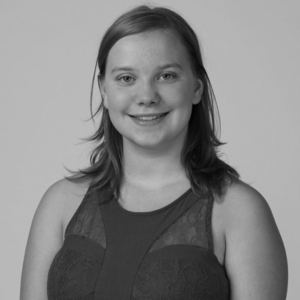Moran: Research before travel can help to ease nerves
Going abroad takes more planning than deciding what to bring. Among other things, I had to apply for visas, exchange my American dollars for Hong Kong ones and pack a wardrobe that could keep up with all the weather I would experience. But the most important step I had to take before I left was to read as much as I could about Hong Kong.
Our program advisers sent us plenty of brochures and pamphlets about what we should pack and giving up the details on the classes we would be taking when we got there. I have two guidebooks that give me suggestions about places to go and things to do. I even Googled the cultural practices in Hong Kong.
From all this research, I’ve figured out plenty of things I needed — and really didn’t need — to know. I’ve mapped out many of the sites I want to go see and how to get to them. I know the best restaurants in the city and how much cash to bring along. A little less importantly, I know Hong Kong is famous for its custom tailoring and that we are not supposed to sit on the floor in public places. And to avoid a potentially awkward situation, I found out that when we visit mainland China, locals may take pictures of us without asking because they find large groups of Westerners interesting.
Every time something bad happened in or around Hong Kong over the past few months, I followed the media coverage closely. I read about the poor air quality in Beijing, where my program will be visiting during our first two weeks. Don’t worry, mom, I will wear a mask. I read about the landslide in the Shenzhen region. Most recently, I read about book sellers in Hong Kong who have gone missing. Many of them sell literature that is illegal in mainland China, and people are concerned that there might be a connection.
So far, nothing has scared me out of going. Maybe that is because these stories paint an incomplete picture of the region. When determining the newsworthiness of a story, journalists have to consider how novelty and conflict contribute to a story. Bad things attract more attention and become news stories more often than good things do.
It’s dangerous to be scared away from visiting a place because of the news coverage. Bad things happen everywhere, but there are also many good stories that I rarely see or hear in the news media because they come across as something average and unimportant.
I know that no amount of research can completely prepare me for Hong Kong. There is a huge difference between reading about a place in books and going there in person. Being surrounded by Hong Kong’s customs and traditions constantly will teach me more than I could ever learn in a brochure from the Syracuse University Abroad office. The best way to be culturally sensitive is to mimic what those around me are doing. In fact, all of my research could end up having a negative impact on my travels. I may read wrong information or feel too comfortable with my knowledge of the region before I even go there. If either of these things happen, I might miss important cultural clues or do something tactless based on these incorrect assumptions.
However, I am going to continue reading everything I can. It helps me put myself at ease. The mental and emotional benefits of reading make it worth it, even if I will never actually get an accurate representation of what my experience is going to be like. I will just have to be careful while researching to remember that available literature can only paint a partial portrait. Things will always be left out.
Published on January 20, 2016 at 8:39 pm






